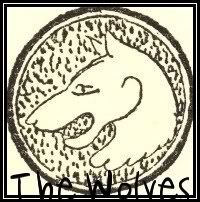 From the back:
From the back:
‘Laurens van der Post’s incomparable knowledge of Africa illuminates this splendid epic novel, set in a remote region bordering the great Kalahari Desert. It is the story of Francois Joubert, a teen-age boy about to become a man, his experiences with the wonder and mystery of a still-primitive land, and his secret friendship with Xhabbo, the little Bushman whose life he saves. Xhabbo teaches Francois how the living spirit needs “a story” for its survival and, in turn, saves Francois’s life when the idyllic world at Hunter’s Drift is overtaken by the political violence of contemporary Africa.’
I picked this book up after checking out and bringing home the sequel by accident. That book – A Far-Off Place – is the source for a movie I’ve seen several times, and I was very eager to read it. However upon closer inspection I realized that it was a sequel (although it claimed it could be read on it’s own). I had to go back and fetch A Story Like the Wind, and am very glad that I did.
While the style of the book was a bit dense, full of details and the author/narrator’s insights and predictions, my attention was held by the wonderful way in which the world of the story was brought to life. I felt as though every time I opened it, sunlight and warmth and bird song came pouring out in a golden wave.
The author grew up in Africa, “just in time” to experience and be profoundly impacted by what he describes in the Introduction as the “ancient Merlinesque world”, the “magic which life in primitive Africa seems to me to have possessed before we arrived from Europe to spoil it.” He believes that Europeans “killed contemporary Africa’s respect for its own great spoken literature of the past.” Through A Story Like the Wind, Post was attempting to preserve the sense of wonder that was instilled within him, and help “thaw the frozen imagination of our civilized systems”.
At it’s heart the book is about seeking balance between the primitive and civilized in African, and perhaps any society. Francois was raised half by Calvinist parents who had radical views about the treatment and worth of the native Africans, and half by a Bushman nanny and the Matabele men and women who worked as equal partners on the remote cattle ranch and farm. That search for balance is therefore illustrated strongly in Francois’s own heart, as he struggles to accept a changing Africa where European influence is greater and greater, and the natural world and the stories that help life make sense to his Matabele friends are treated with contempt and considered “backward”.
Heavy thoughts and themes. The story itself, however, is lively and well paced, full of daring rescues and hopeless quests and first love. A deep respect for the earth and the creatures that dwell there is always something I identify with strongly, so the stories and songs that the Bushmen and Matabele and Francois use to explain the natural world delighted me. The book made me want to get up early and hike to the top of a mountain to watch the sun rise and listen to the birds singing their morning songs. I want to feel as close and in tune with my surroundings as Francois felt.
The story ends abruptly, with total calamity and the end of life as Francois knew it. I am now more eager than ever to read A Far-Off Place, and travel deeper into Africa. I’ve been given a lot to think about, and with the rain pouring outside and the temperature barely above 40, I wouldn’t mind wrapping myself for awhile longer in golden sunshine.




One of my favorite authors. In the 70s I read everything he wrote. A Far Off Place was my favorite. Bushman of the Kalahari was excellent too. Glad you found him.
By: singraham on April 3, 2009
at 9:59 pm
I’m glad too – I’ll have to interlibrary loan the rest of his books. Should be good.
By: tuulenhaiven on April 4, 2009
at 7:04 am
[…] thought about frequently for some reason, but couldn’t figure out what it was. Then I read A Story Like the Wind by Laurens van der Post, and it all came back to me. One of Reece Witherspoon’s earliest […]
By: Movie Mayhem: Feb. 18th-28th « what we have here is a failure to communicate on March 4, 2010
at 11:20 am
I love the way you’ve described A Story Like the Wind – this book and its sequel I read when I was a young teenager and at 55 I’m reconnecting to the magic and myth so wonderfully captured in it. There has been a re-igniting of my fascination for Africa and I intend to visit there sometime this year and in particular meet any Bushmen I can. Thanks again for making it so alive in your write up.
By: Francesca Cassini on March 23, 2011
at 3:35 am